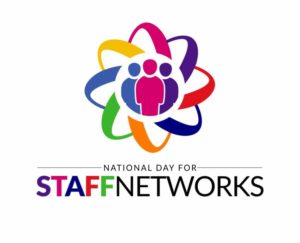Wednesday was National Staff Networks Day, a day to focus on and celebrate the way in which staff networks help to improve the workplace.

Wednesday was National Staff Networks Day, a day to focus on and celebrate the way in which staff networks help to improve the workplace. The Ombudsman is a champion of staff networks and counts a number of different networks among her key stakeholders.
But what are they and how can the benefit an organisation and the staff the network represents?
What is a network?
A network, sometimes called an Employee Support Group (ESG), is an association of individuals who have a common interest. Although supported by HR, staff networks are usually set up by staff and are run by staff for the benefit of the overall organisation. They are formed to provide a source of assistance and helpful information.
Networks bring people with particular interests together, to share their experiences, develop their skills and careers and act as an effective consultation tool for departmental policies and strategies.
What are the benefits of networks?
There are a lot of benefits to staff networks which is why employers should encourage their creation, and embrace, and engage with, existing networks. At their best they enable staff from certain interest groups, particularly minority groups, to feel accepted, improving staff engagement and creating an inclusive workplace.
They can also:
- provide a sense of security for staff
- help to establish a collective identity
- allow connections to be made for both work and life purposes
- help to get things done in complex environments
- prevent complaints arising by addressing issues that affect the group they “represent”
- increase creativity through the exchange of ideas
Overall, they are a force for good. When they operate with an organisation’s purpose and/or vision in mind, they can shape and change organisational culture for the better.